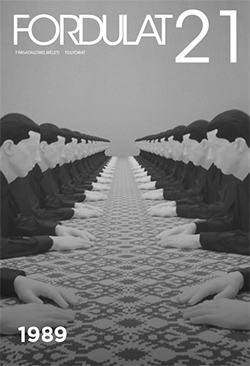Osztály és társadalomszerkezet a magyar szociológiában
Class and Social Structure in Hungarian Sociological Researches
Author(s): Márk Áron Éber, Ágnes GagyiSubject(s): Social Sciences, Sociology, History and theory of sociology, Social differentiation, Social Theory, Welfare services, Sociology of Politics, Socio-Economic Research
Published by: Fordulat
Keywords: class analysis;hungarian sociology
Summary/Abstract: The article looks at research on social structure in Hungarian sociology from the perspective of class analysis. It follows the paradigms and institutional context of Hungarian sociology, as they have been formed by Hungary’s double dependence from Soviet and Western cores throughout the second part of the 20th century, and demonstrates that, as a result of those changes, the concept of class has gone absent from social research from the early 1970’s on. While thinking towards a possible reconstruction of 20th century Hungarian social formation in a class sensitive perspective embedded in the dynamics of the capitalist world system, we point at a typical effect of global hierarchies upon the description of local social structure: the tendency to identify a „double structure” in local society. „Doubling” places various characteristics of local society on two different onthological levels – Western vs. Eastern, future vs. past. We argue that in order to conceive local social formation as inherent part of an integrated, synchronic global history, this internalized effect of global hierarchies needs to be transcended.
Journal: Fordulat (2008-tól Új Folyam)
- Issue Year: 2014
- Issue No: 21
- Page Range: 170-191
- Page Count: 22
- Language: Hungarian

